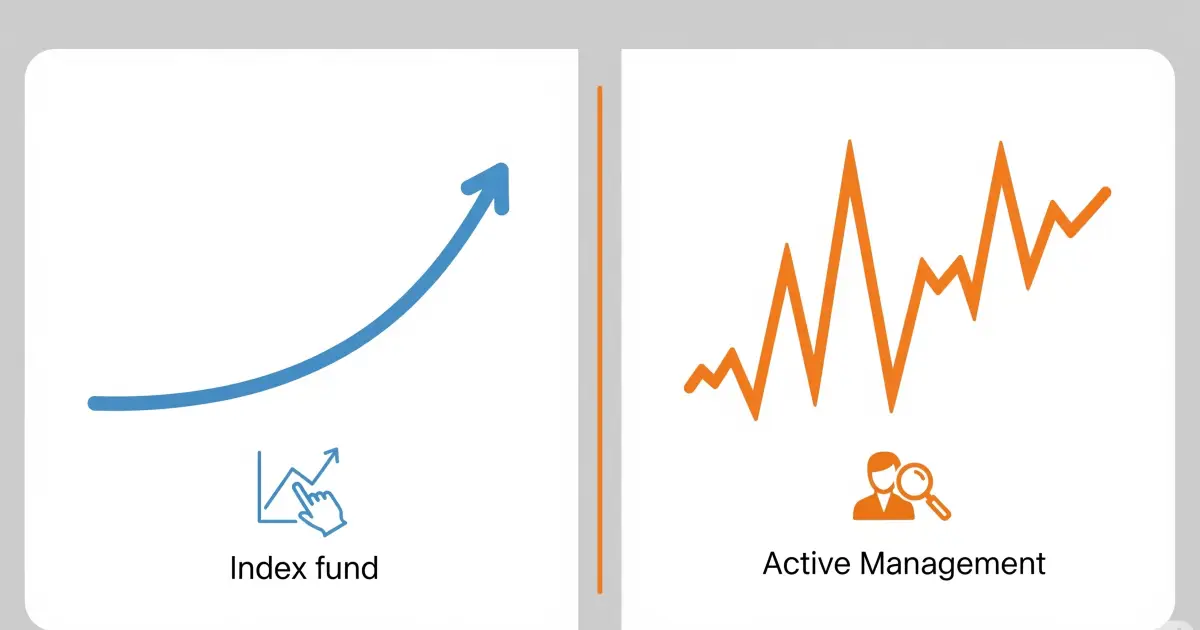When it comes to investing in mutual funds, one of the biggest questions investors face is: Should I choose index funds or actively managed mutual funds? Both have their pros and cons, and the right choice depends on your goals, risk appetite, and investment style.
In this article, we’ll break down the key differences between index funds and actively managed mutual funds to help you make an informed decision.
What Are Index Funds?
Index funds are a type of mutual fund that aim to replicate the performance of a specific market index like the Nifty 50 or S&P 500. They don’t try to beat the market — instead, they track it.
Since index funds are passively managed, fund managers don’t actively pick and choose stocks. Instead, they simply mirror the index composition. This results in lower expense ratios and minimal trading activity.
Key Features of Index Funds:
- Track a benchmark index
- Low expense ratio
- Minimal buying/selling activity
- Suitable for long-term, hands-off investors
What Are Actively Managed Mutual Funds?
Actively managed mutual funds are run by fund managers who make decisions on which stocks or bonds to buy and sell. Their goal is to outperform the market or a specific benchmark index.
This involves research, analysis, and frequent trading based on market trends, economic data, and company performance. Because of this active involvement, these funds typically come with higher fees.
Key Features of Actively Managed Funds:
- Managed by professionals who try to beat the market
- Higher expense ratio
- Active buying and selling of securities
- Potential for higher returns (with higher risk)
Index Funds vs Actively Managed Funds: A Comparison
| Factor | Index Funds | Actively Managed Funds |
|---|---|---|
| Management Style | Passive | Active |
| Expense Ratio | Low (0.1% – 0.5%) | High (1% – 2.5%) |
| Return Expectation | Market returns | May outperform (or underperform) |
| Risk Level | Lower (due to diversification) | Higher (due to active bets) |
| Transparency | Very transparent | Depends on the fund manager |
Which One Should You Choose?
Your choice between index funds and actively managed funds should depend on your investment goals, risk tolerance, and time horizon.
Choose Index Funds if:
- You prefer a low-cost investment option
- You want consistent, market-matching returns
- You’re investing for the long term (5+ years)
- You don’t want to time the market or track performance daily
Choose Actively Managed Funds if:
- You believe skilled fund managers can outperform the market
- You’re comfortable with higher risks for potentially higher rewards
- You want to invest in specialized themes (like small-cap, sectoral, or thematic funds)
- You have time to review and switch funds if needed
Final Thoughts
There’s no one-size-fits-all answer in the debate of index funds vs actively managed mutual funds. Many smart investors even combine both in their portfolios to balance cost and performance.
Whichever you choose, remember to stay invested, be consistent, and align your strategy with your financial goals. Over time, the habit of disciplined investing matters more than picking the “perfect” fund.

